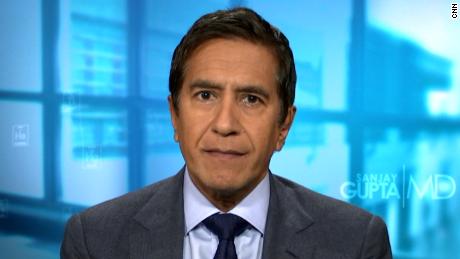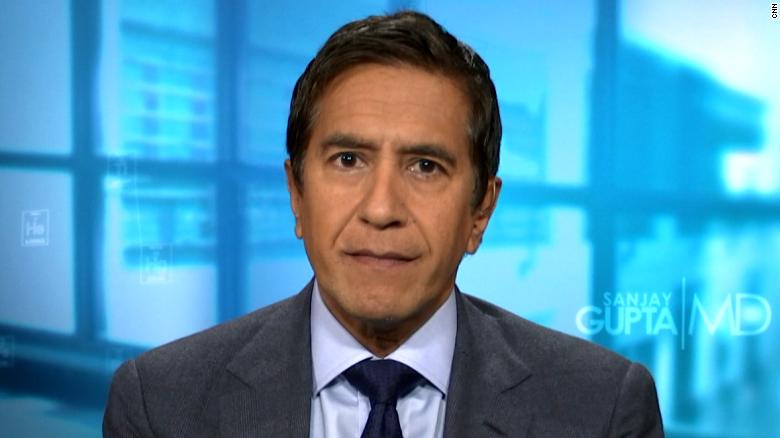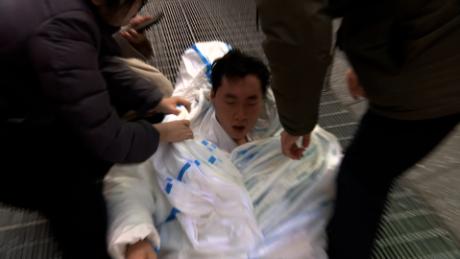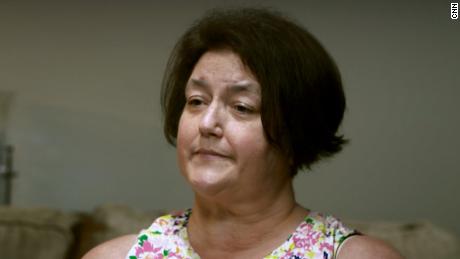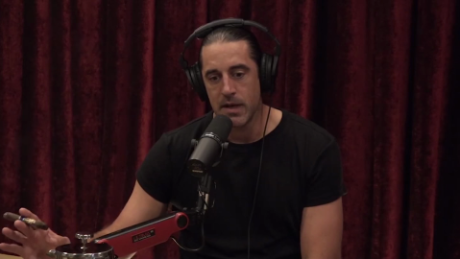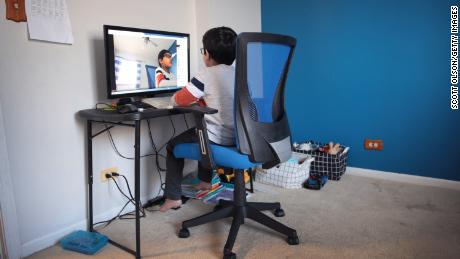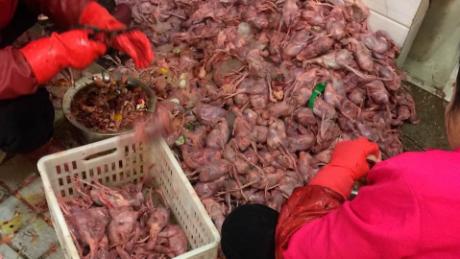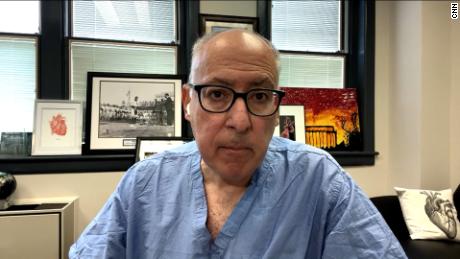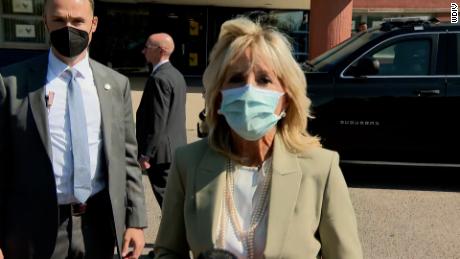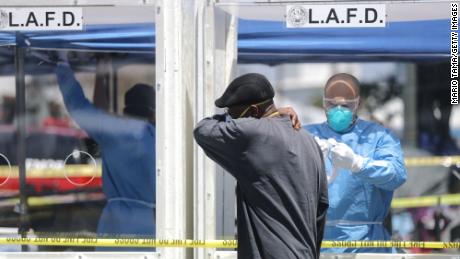(CNN)The Delta variant of Covid-19 is more contagious than other lineages, and is spreading rapidly in under-vaccinated populations.
While vaccination is a matter of choice for adults, many children -- particularly those under the age of 12 -- cannot get vaccinated at all.
That leaves a lot of uncertainty, especially for parents and caregivers considering summer camps and school.
Children and masking
Should parents be wearing masks around their children? Where should children be wearing masks? At least for now, the answer may depend on where people live.
"I would say right now, if your kids are old enough to wear masks, then they should when they're indoors, at least until we can get our arms around this Delta variant," Dr. Peter Hotez, dean of the National School of Tropical Medicine at Baylor College of Medicine, told CNN's Poppy Harlow and Jim Sciutto on Wednesday.
Hotez said that kids are safer in areas like the Northeast, which are seeing lower rates of the variants. Regions where the variant is spreading more are experiencing a "one-two punch" of the variant combined with low vaccination rates.
"This requires parents and really anyone to have some situational awareness of what their region looks like, what their state looks like, what their county looks like in terms of vaccination rates and Delta variants," Hotez said.
That calculation may also involve the individual risk of a child and their family, US Surgeon General Dr. Vivek┬ĀMurthy said.
"I think it's very reasonable for parents who are living with kids who are unvaccinated, or for that matter, other family members who are unvaccinated, to consider wearing a mask if they're in a high risk area or if their job requires a high degree of exposure," Murthy told CNN's Erica Hill on Wednesday. "The goal is, again, here to create some flexibility so people can make decisions based on their situation and their risk tolerance."
Speaking to CNN's Don Lemon on Tuesday, National Institute of Allergy and Infectious Diseases Director Dr. Anthony Fauci was clear on the point: "If your children are not old enough to get vaccinated, when they're out there in the community, they should be wearing a mask."
Dr. Yvonne Maldonado, chair of the American Academy of Pediatrics' Committee on Infectious Diseases, told CNN that vaccinating adults may better protect children, even if the virus is more transmissible.
"It is important for parents and other eligible close family members to be fully vaccinated around children less than 12 years of age to protect them as much as possible against infection with the Delta variant," Maldonado told CNN in an email.
"The vast majority of new infections are occurring among unvaccinated individuals and creating a 'pod' of vaccinated individuals around young children, as well as continuing them to mask and distance in indoor settings and among crowded settings, will be important in keeping them safe."
Protection from vaccines
Children under 12 may not be immunized with any Covid-19 vaccine, which is why the "pod" Maldonado references may be so useful. Still, it is the nature of vaccines that breakthrough infections can occur, particularly with a variant showing increased transmission.
"It is possible that you will see people who are infected get breakthrough infections,"┬ĀFauci said.┬Ā
"We haven't formally proven yet how much diminution there is in the likelihood of transmitting it to someone else -- including children -- and that's one of the reasons why you've got to be careful when you're dealing with something like the Delta variant," he said.
But even without breakthrough infections, some children run a risk of falling through the cracks due to their family's vaccination status. Research published this week from the Kaiser Family Foundation shows that, in most households surveyed, vaccination is an all-or-nothing proposition.
More than 75% of adults surveyed who were vaccinated said their whole household is vaccinated, while 75% of unvaccinated adults surveyed said no one in their household is vaccinated.
"I think where pediatricians will stand in the gap is to say when they see an 8-year-old who is not yet eligible for vaccination. We really should take the time in that visit, to ask about vaccination status of the family, so that we can make ourselves available for questions," Dr. Buddy Creech, Director of the Vanderbilt Vaccine Research program, told CNN. "We want parents and individuals to feel good about getting the vaccine themselves and for their children."
Waiting for more research
More concrete guidance on the variant likely may hinge on what research shows about transmissibility and infection with the Delta variant specifically. That research can help parents make informed risk calculations about the variant and their child -- calculations that, Creech points out, parents already make seasonally.
"We make those risk calculations all the time. We recognize it's flu season, or respiratory virus season at large, and we take that risk of our children becoming infected with one of those viruses, even though we know that those viruses are connected with sinus infections, ear infections, pneumonia. And if nothing else, just a fever illness that is uncomfortable for that child," he said.
The increased transmissibility overall may already be affecting younger populations, even if the transmission isn't specific to young people.
"We know as a fact, not conjecture but as a fact, that this virus spreads more efficiently from person to person. And it also leads to more severe disease," Fauci said. "So it is not surprising that we're seeing more younger people not only getting infected but getting seriously ill."
Fauci said that the elderly and immunocompromised still face the highest risk of severe disease. That difference, Creech said, could be key.
"I think the calculations of risk really change, if this goes from a flulike illness that rarely causes complications in children, to something that is more like what we see in our older adults or those with underlying medical conditions. That would be a game changer for how we are attacking this virus."
